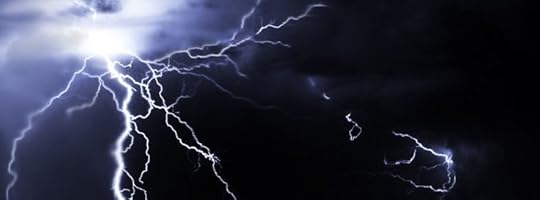McCaffery 20th Century Greatest Hits Reading Group discussion

This topic is about
Pale Fire
Nov - Dec 16 'Pale Fire'
>
November 16 - Pale Fire by Vladimir Nabokov - Final and Overall Thoughts (Spoilers allowed)
date newest »
newest »
 newest »
newest »
message 1:
by
Laure
(new)
-
added it
Nov 17, 2016 12:51PM
 Mod
Mod
reply
|
flag
 I read this book last year and found it very intriguing, but can't really claim to have fully understood it - I think Nabokov deliberately made it cryptic and elusive.
I read this book last year and found it very intriguing, but can't really claim to have fully understood it - I think Nabokov deliberately made it cryptic and elusive.
Hugh wrote: "I read this book last year and found it very intriguing, but can't really claim to have fully understood it - I think Nabokov deliberately made it cryptic and elusive."
Yes, that is my first impression of it. One of his goals is to set the reader on 'the wrong foot' so to speak. It will be interesting to work out why.
On another matter, I have found this list about Nabokov.
Interesting: 'Ulysses' top of the class again. :)
http://thegreatestbooks.org/lists/145
Yes, that is my first impression of it. One of his goals is to set the reader on 'the wrong foot' so to speak. It will be interesting to work out why.
On another matter, I have found this list about Nabokov.
Interesting: 'Ulysses' top of the class again. :)
http://thegreatestbooks.org/lists/145
 The well-known review by Mary McCarthy: "Bolt from the Blue" (June 3, 1962)
The well-known review by Mary McCarthy: "Bolt from the Blue" (June 3, 1962)https://newrepublic.com/article/63440...
"Pale Fire is a Jack-in-the-box, a Faberge gem, a clockwork toy, a chess problem, an infernal machine, a trap to catch reviewers, a cat-and-mouse game, a do-it-yourself novel. ......."

 Haaze wrote: "The well-known review by Mary McCarthy: "Bolt from the Blue" (June 3, 1962)
Haaze wrote: "The well-known review by Mary McCarthy: "Bolt from the Blue" (June 3, 1962)https://newrepublic.com/article/63440...
"Pale Fire is a Jack-in-the-box, a Faberge gem, a clockwork toy, a ..."
I'm curious. Why is Ms. McCarthy's famous book not on Mr. McCaffery's list? I'm sorry, I realize there is no answer to this question. I enjoyed the "link" to McCarthy. Learn something new!
 Hmm, good question. Perhaps he didn't approve of women writers...? He only included about a dozen women among the 100.
Hmm, good question. Perhaps he didn't approve of women writers...? He only included about a dozen women among the 100.
 It has been an interesting experience. I realize now, I've been grossly insensitive to the historical significance of Pale Fire. Obviously, a novel published in 1962 with an openly gay protagonist must have been a shock for many people, and Nabokov must be praised for his openness and his bravery. And I apologize to everyone for any previous remarks that I made that did not take this significant societal issue into account.
It has been an interesting experience. I realize now, I've been grossly insensitive to the historical significance of Pale Fire. Obviously, a novel published in 1962 with an openly gay protagonist must have been a shock for many people, and Nabokov must be praised for his openness and his bravery. And I apologize to everyone for any previous remarks that I made that did not take this significant societal issue into account.That being said, I'm still not very fond of this book. Not, I reiterate, because of the story, or the characters, or even the form. I don't like Nabokov as a writer. His constant reliance on alliteration and obscure smilie solely, it seems, as decorative devices eventually becomes just trite and then numbing. There is never any variation: "moist and misty"- "bruised and branded"- "fury and hurry" - "farce of fate" - "girls galoshes"- "complex contribution" - "magical madness" - "grateful grief" - "tender treasure" - "plated with poetry" - "a roof in the rain". It always the same and after awhile seems gratuitous and insincere.
Then there are his metaphors, almost always, smilies, and again their constant and repetitive use diminishes greatly their effectiveness.
"like an old tipsy witch"
"like a hesitating infant"
"like a colored flame"
"like a boy down the banister on his birthday"
"as if it had been the end of the secret passage"
"as a furious young heir"
"as one has for a fickle young creature who was been stolen and brutally enjoyed by a black giant but now again is safe in our hall and park, whistling with the stableboys, swimming with the tame seal."
Ironically, the front half of this last example I found beautiful, and more importantly, expressive: "I now felt a new, pitiful tenderness toward the poem..." Figures are meant to enhance and add richness, but their over use simply dulls.
Finally, there is this interesting image: "...with the solemn fussiness (what is solemn fussiness?) of a poor lame boy trying to get his spastic brother out of the range of the stones hurled at them by schoolchildren, once a familiar sight in all countries." It is a powerful image! but why both boys have to be damaged - "lame" & "spastic" and whether it really contributes to the narrative I am not sure.
That's it for me. I could have said more, but probably should have said less.
(All the examples cited come from the last 14 pages of the commentary.)
One final, final thought, I did like the poem. :-)
 Manda wrote: "Mark wrote: "It has been an interesting experience. I realize now, I've been grossly insensitive to the historical significance of Pale Fire. Obviously, a novel published in 1962 with an openly gay..."
Manda wrote: "Mark wrote: "It has been an interesting experience. I realize now, I've been grossly insensitive to the historical significance of Pale Fire. Obviously, a novel published in 1962 with an openly gay..."Yes, I agree, Nabo knew how to pick his subjects. I will probably read Lolita too, so I can compare them.
I've never read Cormac. As to the question of liking or understanding that's complicated. I've never understood F.W at all but I have had fun reading it. I've read numerous reviews on GR where people say they finish books they despise. I do have trouble understanding that; maybe I'm too old for this game?
 You can't quit till you start. It just wouldn't be cricket! Besides, this is potentially the most fun reading experience ever!
You can't quit till you start. It just wouldn't be cricket! Besides, this is potentially the most fun reading experience ever!Ulysses is a book for grownups. Not because it's dirty and not because it's difficult, but because its about a man and a woman who have been married sixteen years. And most 20 year olds don't find that theme particularly interesting. When people say it's too hard to read and too hard to understand, what they really mean is "I don't like the story and I'm not interested in the characters or their problems." Actually Ulysses is a rather simple story that the author has infused with so much electricity that it explodes on the mind like a Super Nova! In truth Ulysses' reputation is not based upon the millions who have left it unfinished and disappointed, but, rather on the experiences of we hardy few who love it dearly!



